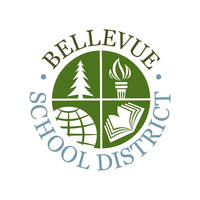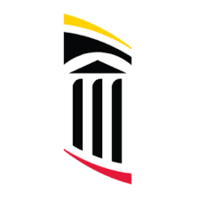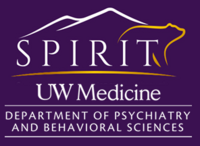About the EBP Toolkit
Our Company
The EBP Toolkit is a web-based applications that facilitate best practices in the training, implementation and supervision of evidence-based treatments for mental health. It was founded by Martin Unger and Mark Swardstrom in November of 2014.
If you have feedback or would like to talk to us for any reason, drop us an email here at info@ebptoolkit.com
Our Customers
The EBP Toolkit and Roster is used by mental health organizations across the United States. Below is a selection of our customers.
-
 We are a nonprofit agency who serves mostly Medicaid eligible clients. We have offices across the state, including Spokane, Wenatchee, Vancouver and Puget Sound.
We are a nonprofit agency who serves mostly Medicaid eligible clients. We have offices across the state, including Spokane, Wenatchee, Vancouver and Puget Sound. -
 The Bellevue School District acknowledges that we learn, work, live and gather on the traditional lands of the Coast Salish Peoples. We honor with gratitude the land itself and the Coast Salish Peoples of our region, past, present and future.
The Bellevue School District acknowledges that we learn, work, live and gather on the traditional lands of the Coast Salish Peoples. We honor with gratitude the land itself and the Coast Salish Peoples of our region, past, present and future. -
 Catholic Community Services and Catholic Housing Services of Western Washington are outreaches of the Catholic Church in Western Washington. Rooted in the Gospel message of love and hope, we recognize the sacredness and dignity of every human person. Our focus is on those individuals, children, families, and communities struggling with poverty and the effects of intolerance and racism.
Catholic Community Services and Catholic Housing Services of Western Washington are outreaches of the Catholic Church in Western Washington. Rooted in the Gospel message of love and hope, we recognize the sacredness and dignity of every human person. Our focus is on those individuals, children, families, and communities struggling with poverty and the effects of intolerance and racism. -
 Compass Health provides comprehensive mental health treatment, crisis prevention and intervention, supportive housing, children’s services, community education and much more. Our non-profit organization serves people of all ages throughout Snohomish, Skagit, Island, San Juan, and Whatcom counties.
Compass Health provides comprehensive mental health treatment, crisis prevention and intervention, supportive housing, children’s services, community education and much more. Our non-profit organization serves people of all ages throughout Snohomish, Skagit, Island, San Juan, and Whatcom counties. -
 Comprehensive Healthcare provides a wide range of innovative behavioral health care services to meet individual, family, and community needs.
Comprehensive Healthcare provides a wide range of innovative behavioral health care services to meet individual, family, and community needs. -
 Fraser helps people with autism, mental health challenges, disabilities, and developmental issues to access care, therapy, education, and supportive services.
Fraser helps people with autism, mental health challenges, disabilities, and developmental issues to access care, therapy, education, and supportive services. -
 Frontier Behavioral Health is a nonprofit Trauma-Informed Care organization that provides clinically and culturally appropriate behavioral healthcare and related services to individuals of all ages in collaboration with community partners.
Frontier Behavioral Health is a nonprofit Trauma-Informed Care organization that provides clinically and culturally appropriate behavioral healthcare and related services to individuals of all ages in collaboration with community partners. -
 The Harborview Abuse & Trauma Center provides the highest quality, evidenced based services to help persons impacted by sexual assault and other traumatic events.
The Harborview Abuse & Trauma Center provides the highest quality, evidenced based services to help persons impacted by sexual assault and other traumatic events. -
 Kitsap Mental Health Services (KMHS) is a 501(c)(3) not-for-profit organization providing a full range of inpatient, outpatient, and residential behavioral health services for children, adults and families.
Kitsap Mental Health Services (KMHS) is a 501(c)(3) not-for-profit organization providing a full range of inpatient, outpatient, and residential behavioral health services for children, adults and families. -
 We are an outpatient mental health program (we do not do SUD treatment). Our program is called the Sexual Assault and Family Trauma (SAFET) Response Center.
We are an outpatient mental health program (we do not do SUD treatment). Our program is called the Sexual Assault and Family Trauma (SAFET) Response Center. -
 Mental health professionals will gain a comprehensive understanding of TF-CBT and its application in therapy through 4 days of training and 14 consultations.
Mental health professionals will gain a comprehensive understanding of TF-CBT and its application in therapy through 4 days of training and 14 consultations. -
 We aim to increase the effectiveness of the child welfare and children's behavioral health workforce through collaborative partnerships and evidence-based professional development. https://theinstitute.umaryland.edu/our-work/national/pfs/
We aim to increase the effectiveness of the child welfare and children's behavioral health workforce through collaborative partnerships and evidence-based professional development. https://theinstitute.umaryland.edu/our-work/national/pfs/ -
A program of the Center for Child and Family Health, the North Carolina Child Treatment Program is a statewide effort to train mental health providers in evidence-based treatment models addressing childhood trauma, behavior, and attachment.
-
 The SPIRIT Lab is comprised of faculty, continuing education specialists, research and program coordinators, and additional support staff who work together to train and support a workforce of mental health providers in evidence-based and culturally competent behavioral health treatments for adults with serious mental illness.
The SPIRIT Lab is comprised of faculty, continuing education specialists, research and program coordinators, and additional support staff who work together to train and support a workforce of mental health providers in evidence-based and culturally competent behavioral health treatments for adults with serious mental illness.